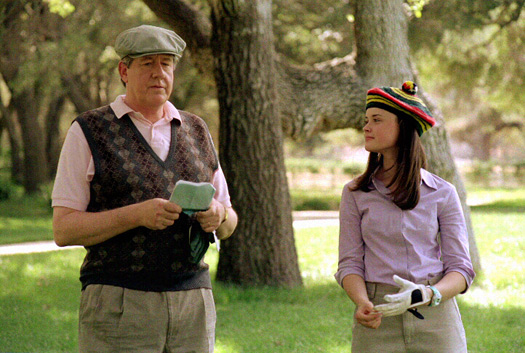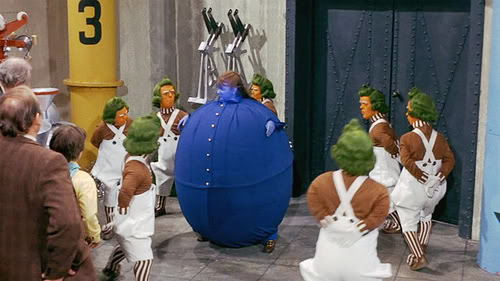
This reflection comes to us from Blair Kilgallen.
Our two granddaughters had been staying with us for several days while our kids took a respite in Iceland before they got too weighed down with the arrival of their third child.
Morning plans were set. My wife Rachel was working at the clinic. Arrangements were made for me to drive our granddaughters over the mountain-pass to drop them off with their other Gramma in Denver. Afterwards, a group from our local church-plant was to meet with the leadership of our oversight church.
Then things took an unexpected turn, as they often do in the mountains.
A spring avalanche had closed the pass. Slushy roads were too hazardous for the drive. We made a decision that Rachel would bring the grandkids down the next day. So, instead of sitting around a table with church leaders talking about the state of our church-plant, I would be spending this day alone with our granddaughters. For reasons soon to become obvious, I turned down an evening dinner invitation with friends.
To top it all off, on leaving for work, Rachel mentioned that our three-year-old granddaughter had been plugged up for a couple days and needed to ingest a belly-full of blueberries and peaches to flush things out. Recalling the afternoon my then-two-year-old son had his own back to nature cloth diaper blowout in the middle of a Texas blueberry farm, I waited for another curdling scream before slipping on the protective blue latex gloves.
Looking forward to hanging with the girls, I arranged a robust assortment of activities that, on perfect execution, should fill a good volume of the day and, hopefully, assure my own survival when it was over.
Here’s how it was going to go down: Start with reading children’s books, followed by toaster hash browns, saucy eggs, and a green breakfast smoothie. Next up: playtime activities, engaging their imagination and creativity, while in the same stroke, destroying the house. Lunch and a hearty outdoor activity would take us into the prospect of a long afternoon nap and some anticipated rest for Opa. As the day winds down, I’d pick up the house and vainly hope it doesn’t get trashed again before my wife walks in the door.
I don’t recall what kick-started the spirited five-year-old’s turrets episode. These things usually progress into a full-blown tantrum when a child can’t get what she wants—whether it’s asking for that otherwise off-limits treat when a parent is talking on the phone, wanting to take another shot at little sister or inappropriately expressing a modest desire for power and control of the world.
Whatever it was, my granddaughter’s finely parsed, matter-of-fact response to my “No” was a brusque “I don’t like you, Opa”—a definite zinger that pierced my heart’s epicardium. Certainly not the endearing expression of love we grandparents are used to hearing from our adorable grandchildren.
If the distinctions between law and grace were suitably taught in preschool, she might have been chanting, “Law sucks!” To which I would reply, “Yes it does, sweetheart. And so do you, right now!”
 Grandparents are typically notorious for leaning more heavily on the side of grace than law. I don’t know if it’s because we, like parents, grow weary of responding to the fallout that comes with saying, “no.” Or maybe since we don’t like the idea of being rejected by a little kid any more than we do others, we try to please.
Grandparents are typically notorious for leaning more heavily on the side of grace than law. I don’t know if it’s because we, like parents, grow weary of responding to the fallout that comes with saying, “no.” Or maybe since we don’t like the idea of being rejected by a little kid any more than we do others, we try to please.
But, mostly, I think it could be that we love our grandkids and see their own desperate need for love—even when they aren’t acting like it’s a high priority, at the time.
In this moment of tension, I was reminded that Jesus loved me enough to die on a cross willingly for the sake of one day capturing and continuing to love my rebel heart. With that in mind, I chose to ignore her words and take the alternate path of what Luther identified and Robert Capon described as left-handed power: simply refusing to use force to effect change.
In Kingdom, Grace, Judgment, Capon writes, “Instead of dishing out justifiable pain and punishment, you are willing to quite foolishly take a beating yourself.” He goes on to say that this paradoxical power “looks for all the world like weakness, intervention that seems indistinguishable from nonintervention…It might, of course, touch and soften hearts. But, then again, it might not. It certainly didn’t for Jesus; and if you decide to use it, you should be quite clear that it probably won’t for you either. The only thing it does insure is that you will not—even after your chin has been bashed in—have made the mistake of closing any interpersonal doors from your side.”
As a caring relationship strategy, there is an intentional commitment to lay down arms for the sake of leaving an open door of understanding and possible resolution.
So, with romper room still in a high state of alert, I decided there would be no threat of a perpetual timeout. No “I’m going to call your mom in Iceland.” I even passed on trying to get her to unwillingly choke on the nearly impossible words, “I’m sorry”—I’d leave that sermon for her parents.
For now, I was agreeing with what Paul Zahl says in Grace in Practice: “Grace is what everyone wants. No one enjoys the stress of demand. It is terminally exhausting.”
Ignoring her attempts for control and relinquishing on my own, I became aware of God’s grace for a relationship in dire need of love.
In a quiet moment, when none of us were feeling like we had the whole world in our hands, I asked the grandkids if they wanted to color. (Most experienced grandmas probably would have already thought of this.) For the next hour, two girls sat at the table thoroughly engaged.
The five-year-old, intently drawing and without stopping to look up, reminded Opa she still hadn’t forgotten him by giving me the finger. Really! Not the grown-up finger, but the backside of a child’s index finger in a casual, yet intentional, upward gesture. I’m not exactly sure what it meant, or even if she did, as I held back tears of laughter: “In the realm of Law, we must keep face. In the realm of Gospel, we can laugh at our own faces in the mirror” (Law and Gospel).
Still waiving the temptation to lecture, I complimented their expressions of creativity. By the time they were finishing up, we were back to talking about whatever, not looking back on what took place earlier.
At this point, I’d like to say that love drove home a decisive win and peace attended our way for the rest of the day. But it was still only ten in the morning!
There would be other tetchy situations, along with more welcomed sights of God’s grace—some of which I photographed and texted to their parents, including a worn-out five-year-old granddaughter collapsed on Opa for an afternoon nap.
As a parent, I know there is a case for law and if-then options when it comes to affecting desirable behavioral changes in a child. Yet, as a grandparent, I am grateful to encounter the often subtle and spontaneous distraction of grace in the tensions of family life.

COMMENTS
One response to “The Distraction of Grace”
Leave a Reply















I so appreciate and relate to the author’s experience. My wife and I have recently become granndparents to Pepper and Rhea (3 year old and 6mos). With our kids growing up, my parenting style was “command & demand”, but somewhere along the way we entered into a time of “rethinking” and renewal – along the way my wife and I stumbled onto a road “less traveled by”, a road called, “grace.” And not just the abstract variety, but as the author says, “grace in the tensions of family life.” Now as grandparents (my wife is called “Oma”), we are getting a chance to rediscover a certain Father’s heart. I am grateful to say that we have found a new path to travel, and it has “made all the difference.”